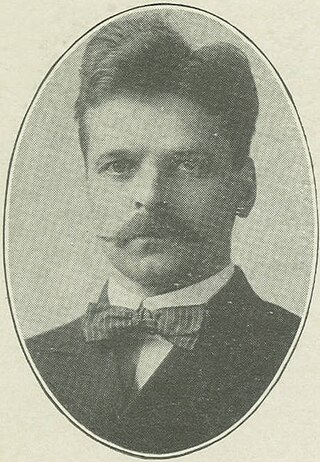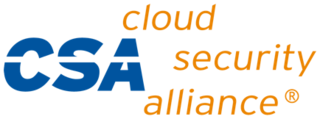Related Research Articles
CISSP is an independent information security certification granted by the International Information System Security Certification Consortium, also known as ISC2.

Eugene Howard Spafford, known as Spaf, is an American professor of computer science at Purdue University and a computer security expert.
Samuel Standfield Wagstaff Jr. is an American mathematician and computer scientist, whose research interests are in the areas of cryptography, parallel computation, and analysis of algorithms, especially number theoretic algorithms. He is currently a professor of computer science and mathematics at Purdue University who coordinates the Cunningham project, a project to factor numbers of the form bn ± 1, since 1983. He has authored/coauthored over 50 research papers and four books. He has an Erdős number of 1.
ATstake, Inc. was a computer security professional services company in Cambridge, Massachusetts, United States. It was founded in 1999 by Battery Ventures and Ted Julian. Its initial core team of technologists included Dan Geer and the East Coast security team from Cambridge Technology Partners. Its initial core team of executives included Christopher Darby, James T. Mobley, and Christina Luconi.

Yevgeny Valentinovich Kaspersky is a Russian cybersecurity expert and the CEO of Kaspersky Lab, an IT security company with 4,000 employees. He co-founded Kaspersky Lab in 1997 and helped identify instances of government-sponsored cyberwarfare as the head of research. He has been an advocate for an international treaty prohibiting cyberwarfare.
Victor Raskin is a distinguished professor of linguistics at Purdue University. He is the author of Semantic Mechanisms of Humor and Ontological Semantics and founding editor of Humor, the journal for the International Society for Humor Studies.

Howard Anthony Schmidt was a partner with Tom Ridge in Ridge Schmidt Cyber LLC, a consultancy company in the field of cybersecurity. He was the Cyber-Security Coordinator of the Obama Administration, operating in the Executive Office of the President of the United States. He announced his retirement from that position on May 17, 2012, effective at the end of the month.

Otto Frederick Hunziker was a pioneer in the American and international dairy industry, as both an educator and a technical innovator. Hunziker was born and raised in Switzerland, emigrated to the U.S., and studied at Cornell University. He started and developed the dairy program at Purdue University when such programs were at their infancy. At this same time, Hunziker was heavily involved with the development of the American Dairy Science Association (ADSA) and the standardization and improvement of many dairy tests and processes. Hunziker wrote several of the leading dairy processing texts, which continue to be cited. After leaving Purdue University, Hunziker managed research and operations at a large, national condensary, continued to drive ADSA's standardization and publishing efforts, represented the U.S. at international dairy congresses, and facilitated dairy industry improvements across the globe.
Discovery Park is a 40-acre (160,000 m2) multidisciplinary research park located in Purdue University's West Lafayette campus in the U.S. state of Indiana. Tomás Díaz de la Rubia, an energy and resources industry executive who also spent a decade as a top scientist and administrator at Lawrence Livermore National Laboratory, serves as Discovery Park's Vice President.
Elisa Bertino is a professor of computer science at Purdue University and is acting as the research director of CERIAS, the Center for Education and Research in Information Assurance and Security, an institute attached to Purdue University. Bertino's research interest include data privacy and computer security.
Donn B. Parker was an information security researcher and consultant and a 2001 Fellow of the Association for Computing Machinery. Parker had over 50 years of experience in the computer field in computer programming, computer systems management, consulting, teaching, and research.

The Center for Education and Research in Information Assurance and Security (CERIAS) of Purdue University, United States, is a center for research and education in areas of information security for computing and communication infrastructures.
David Harley is a former IT security researcher, author/editor and consultant living in the United Kingdom, known for his books on and research into malware, Mac security, anti-malware product testing and management of email abuse.

Boris Loza is the founder of SafePatrol Solutions and Tego Systems, as well as a Certified Information Systems Security Professional (CISSP). He was born in Krasnodar, Russia, where he attained a Master's degree at the age of 22 and a PhD at the age of 26, both in Computer Science and Cybernetics. While still living in the former USSR, Loza published more than 30 scientific articles, as well as secured one patent. Upon relocating to Canada in 1996, his PhD was confirmed by the Higher Attestation Committee of The University of Toronto.
Cyberweapons are commonly defined as malware agents employed for military, paramilitary, or intelligence objectives as part of a cyberattack. This includes computer viruses, trojans, spyware, and worms that can introduce malicious code into existing software, causing a computer to perform actions or processes unintended by its operator.

Carl E. Landwehr is an American computer scientist whose research focus is cybersecurity and trustworthy computing. His work has addressed the identification of software vulnerabilities toward high assurance software development, architectures for intrusion-tolerant and multilevel security systems, token-based authentication, and system evaluation and certification methods. In an invited essay for ACSAC 2013, he proposed the idea of developing building codes for building software that is used in critical infrastructures. He has organized an NSF funded workshop to develop a building code and research agenda for medical device software security. The final committee report is available through the Cyber Security and Policy Institute of the George Washington University, and the building code through the IEEE.

Cloud Security Alliance (CSA) is a not-for-profit organization with the mission to “promote the use of best practices for providing security assurance within cloud computing, and to provide education on the uses of cloud computing to help secure all other forms of computing.”
Lt. Col. Frederick “F.” Lynn McNulty (1939–2012) was the first Director of Information Systems Security for the U.S. State Department, a pioneer in the field of cybersecurity, and has been characterized as the “father” of U.S. federal information security. His peers eulogized him as a tireless advocate for the security of the nation. He was an early and persistent champion of information security in government.
Dr Eric Cole served as chief technology officer at McAfee and chief scientist at Lockheed Martin Corporation. He is the author of several books, including Advanced Persistent Threat; Hackers Beware; Hiding in Plain Sight; Network Security Bible, 2nd Edition; Insider Threat; and his most recent book, Online Danger: How to Protect Yourself and Your Loved Ones From the Evil Side of the Internet. He graduated from New York Institute of Technology.
Edward G. Amoroso is an American computer security professional, entrepreneur, author, and educator based in the New York City area. His research interests have centered on techniques and criteria for measuring trustworthy software development. the application of these methods to secure software development for critical projects in the defense and aerospace industries, and redefining trust parameters for improved security in the cloud.
References
- 1 2 3 4 "CERIAS : Gene Schultz, R. I. P". Cerias.purdue.edu. 2011-10-03. Retrieved 2014-03-03.
- 1 2 3 4 "RIP - Cyber Security Expert Dr. Eugene Schultz". Infosecisland.com. Retrieved 2014-03-03.
- ↑ Angela Moscaritolo (2011-03-18). "Industry remembers security heavyweight Schultz". SC Magazine. Retrieved 2014-03-03.
- ↑ "Infosecurity - Earl Eugene Schultz: 10 September 1946 – 2 October 2011". Infosecurity-magazine.com. Retrieved 2014-03-03.
- ↑ "Security Industry Parts From Gene Schultz". News.softpedia.com. Retrieved 2014-03-03.